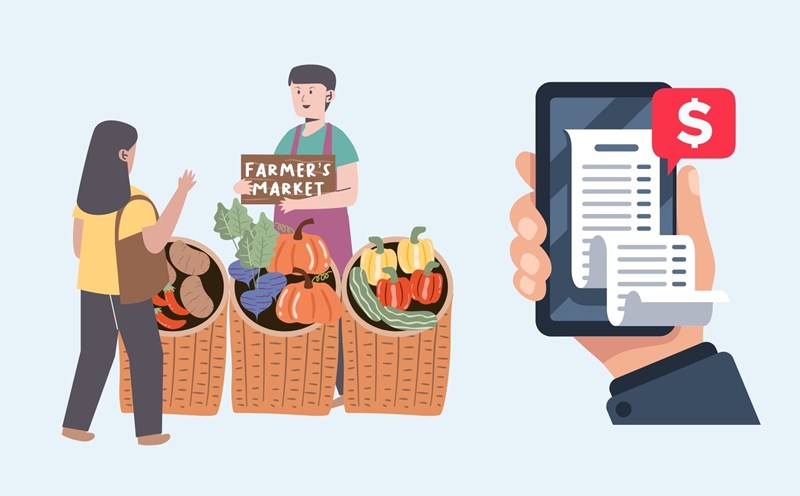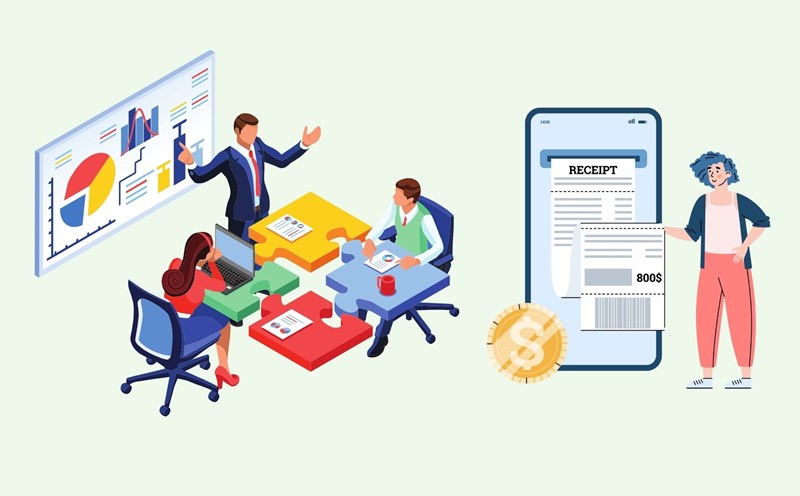Big difference in tax obligations
In the draft Law on Tax Administration being consulted, the Ministry of Finance said that by the end of 2024, the whole country has about 3.6 million households and individuals under tax management, of which 2.2 million households are doing stable business.
Total revenue from this area in 2024 will reach nearly VND26,000 billion. However, the average contract tax rate for each household is only about 672,000700,000 VND per month, while the declared household pays an average of 4.6 million VND, which is nearly 7 times higher.
Notably, there are more than 4,000 business households with revenue of over VND10 billion per year, but more than half still pay taxes under a contract, with a very low tax rate - only about 0.4% of revenue. The Ministry of Finance believes that this is a sign of "serious unfairness" in tax policy and needs to be adjusted to ensure fairness and prevent loss of revenue.
Abolish contracts, apply electronic invoices according to the roadmap
To overcome the above shortcomings, the Ministry of Finance proposes to remove the regulation on tax contracts with households and individuals doing business, switching to the mechanism of self-declaration and self-payment according to the direct method - calculating tax according to the percentage on revenue. At the same time, the tax sector also proposed a roadmap to expand the application of a simple accounting regime and electronic invoices for each group of subjects.
Accordingly, households and individuals with a revenue of VND1 billion per year will have to use electronic invoices with codes or without codes, applying a simple accounting regime similar to small and medium-sized enterprises.
From June 1, 2025, households selling goods and services directly to consumers are required to use electronic invoices generated from cash registers with data connection to tax authorities, according to the provisions of Decree 70.
For the group of households with revenue from 200 million to under 1 billion VND, if they are subject to value added tax, they must also use electronic invoices with codes or without codes. In the condition of not being ready to deploy payment computers, this group is allowed to use simple invoices such as receiving electronic sales receipts via applications, messages or QR codes. However, this is only a temporary solution during the transition preparation period.
From 2027, business households with a revenue of VND800 million/year or more will have to use electronic invoices from cash registers. A year later, the group with a revenue of 200800 million VND was also forced to convert.
Difficulties for micro-households, need to support conversion
The Ministry of Finance expects this reform to contribute to preventing revenue loss more effectively from large business households, while helping to standardize financial management, creating a foundation for development to businesses.
However, the Ministry also warned that the transformation process will pose a big challenge for micro-models such as grocery stores, street stores, online sales, especially disadvantaged groups such as women, ethnic minorities, and the elderly with limited technological qualifications.
In the early stages (2025-2026), there may be a situation of system overload when millions of households simultaneously switch. The cost of investing in cash registers, connecting the system and maintaining compliance reported by households can range from several million to tens of millions of VND per year, creating great pressure for low-income households.
Therefore, the Ministry of Finance believes that it is necessary to include appropriate financial support policies to help small business households adapt and maintain operations when entering the comprehensive tax reform stage.











